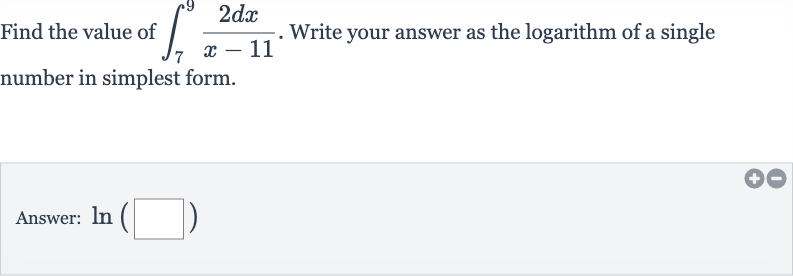Full solution
Q. Find the value of . Write your answer as the logarithm of a single number in simplest form.Answer:
- Apply Fundamental Theorem: We apply the fundamental theorem of calculus to evaluate the definite integral: from to .We substitute the upper and lower limits into the antiderivative:.
- Simplify with Substitution: Now we simplify the expression by substituting the values: .Since the logarithm of a negative number is not defined in the real number system, we can remove the absolute value bars because both and are negative and will become positive inside the absolute value.This gives us:.
- Further Logarithm Simplification: We can further simplify the expression using logarithm properties: .Since , the expression becomes:.
- Distribute and Simplify: Now we simplify the expression by distributing the in the second term: . This simplifies to: .
- Final Answer: The final answer is the negative of two times the natural logarithm of :
Answer: .
We can use the property of logarithms that to write the answer as a single logarithm:
.

